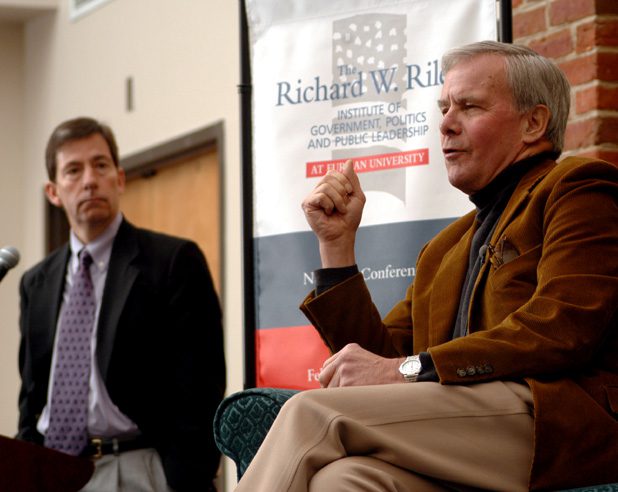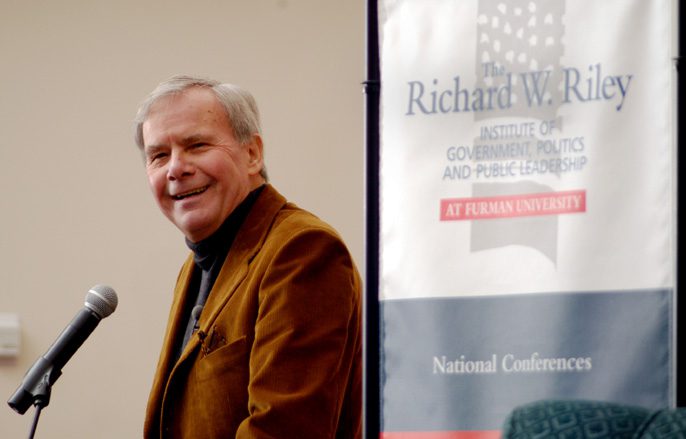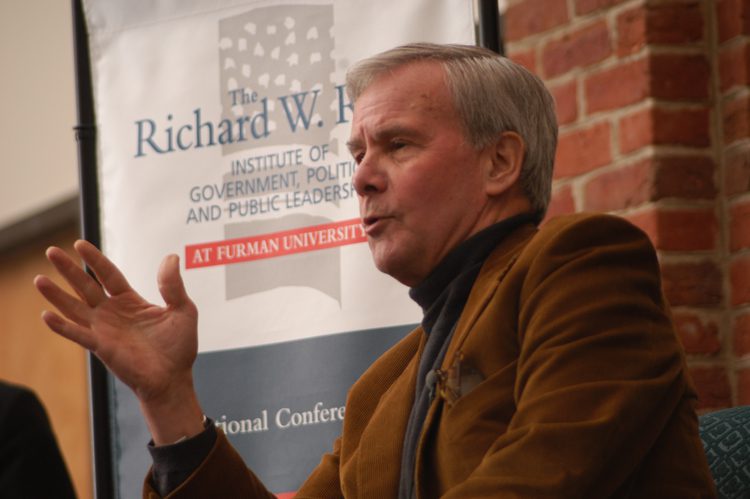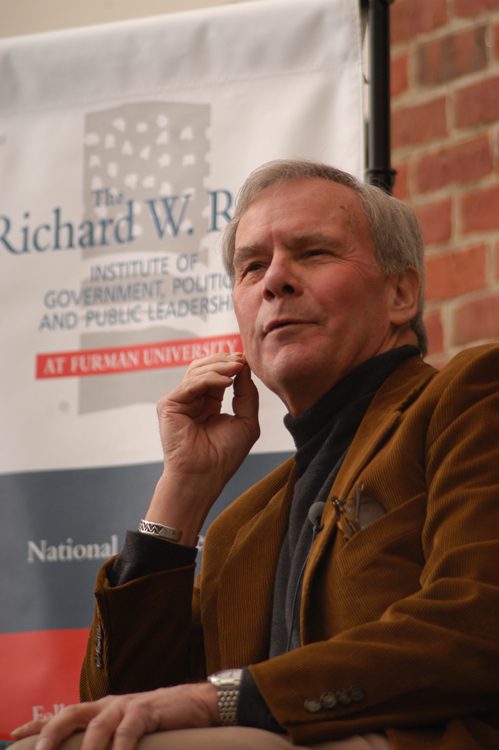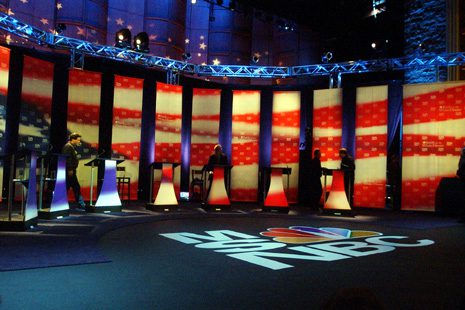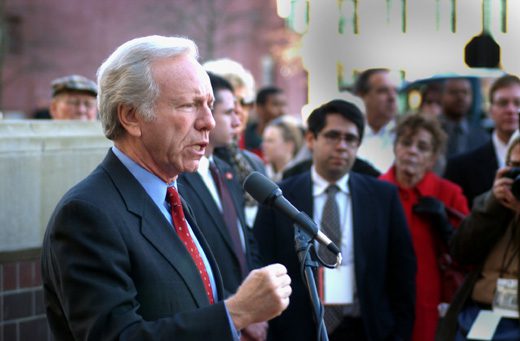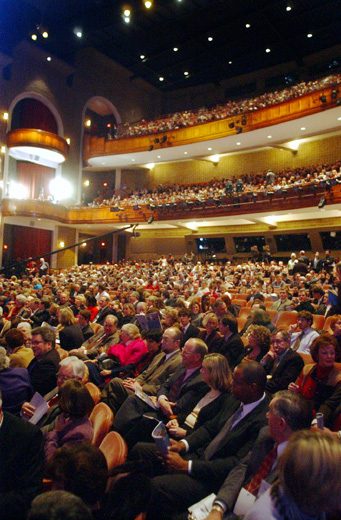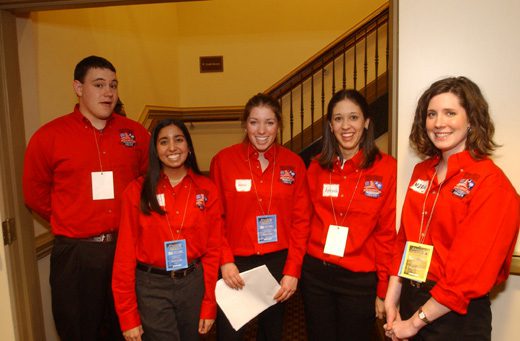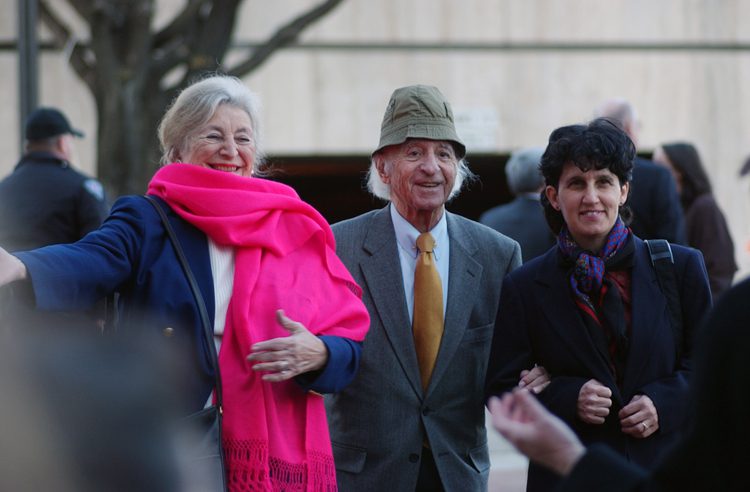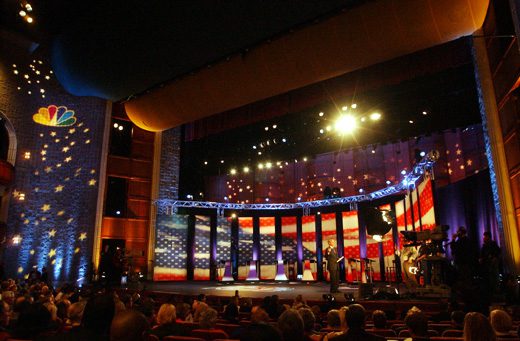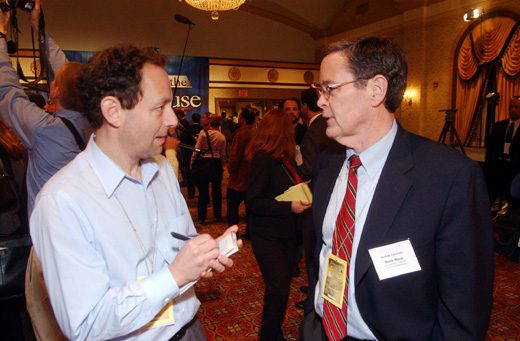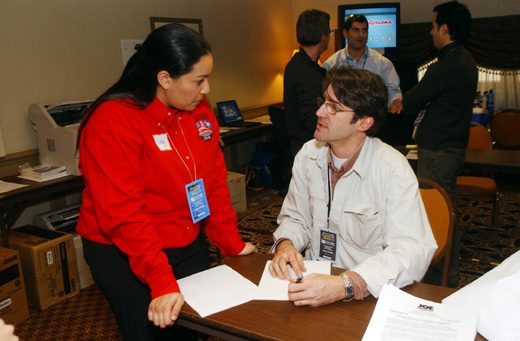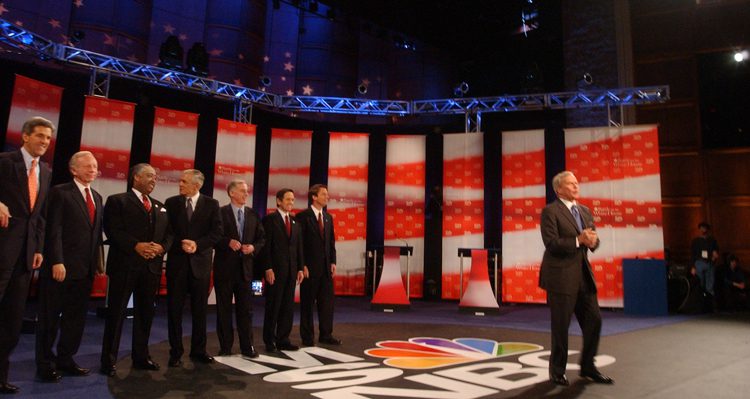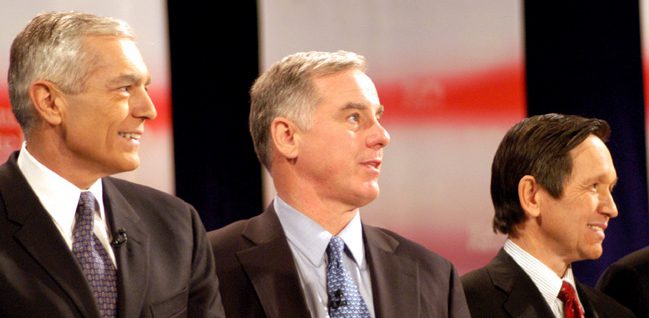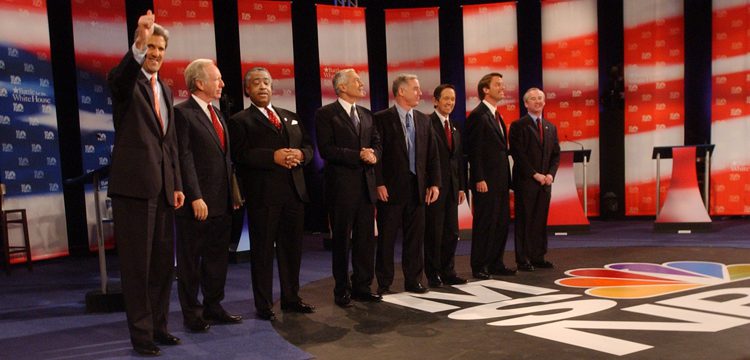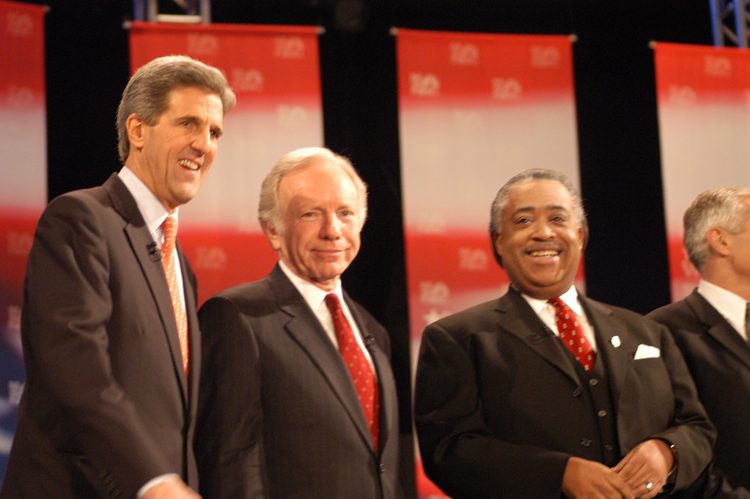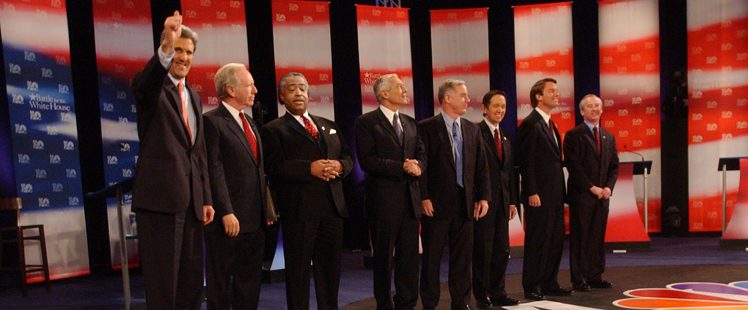

American Politics and Policy
Furman co-hosted National Debate
Furman University served as a co-host for the Democratic Presidential Debate in Greenville on January 29, 2004. Furman joined the South Carolina Democratic Party and the South Carolina Young Democrats as hosts for the debate that was held in the Peace Center for the Performing Arts. The 7 p.m. debate was televised nationally and moderated by “NBC Nightly News” anchor Tom Brokaw.
The Riley Institute hosted NBC anchor, Tom Brokaw, on campus, January 29th. He spoke to over four hundred Furman students, faculty, and staff for forty minutes and entertained questions from the audience. Brokaw emphasized the importance of young people becoming involved in the political process “as decisions made today have a direct impact on their lives in the future.”
The debate in Greenville took place two days after the New Hampshire Primary and just five days before South Carolina’s “First in the South” Primary. Seven Democratic presidential candidates participated – General Wesley Clark (Ret.), Governor Howard Dean, Senator John Edwards, Senator John Kerry, Congressman Dennis Kucinich, Senator Joe Lieberman, and Reverend Al Sharpton. Approximately one hundred and thirty Furman students were directly involved with the debate as volunteers. Some students had the opportunity to work with the candidates at the Peace Center while others worked with the media inside the media hub at the Westin Poinsett hotel.
“Furman was very pleased to have been invited to serve as a host for this important political event,” university president David E. Shi said. “Our tradition has been to engage the political process in South Carolina and the nation, and Furman has a strong track record of hosting a variety of prominent political events.”
Furman’s “Debate Week” began on Wednesday, January 28th with two addresses given by Riley Institute Fellow in Residence, Dr. Merle Black, nationally prominent expert on Southern Politics. Both addresses, “The Rise of Republicanism in the South” and “The Democratic Party in the South,” were to create the context and frames of reference to understand the Presidential Primary in South Carolina.

